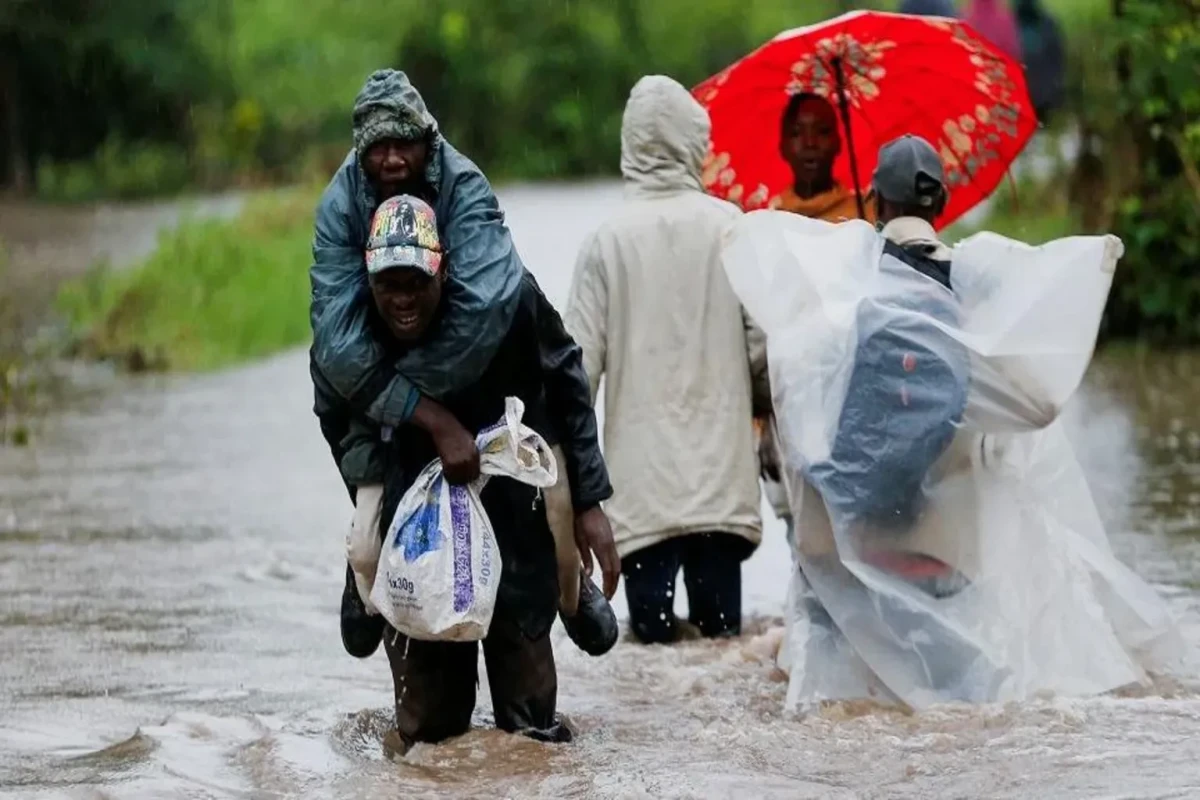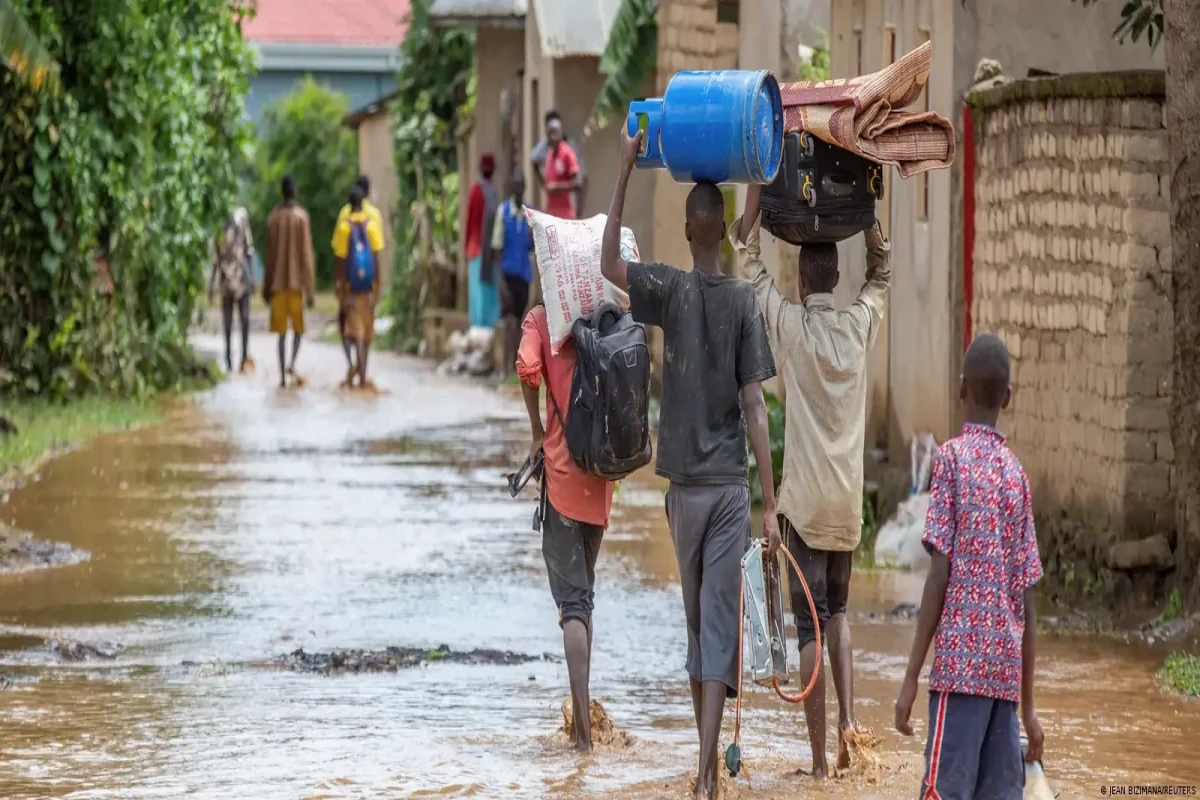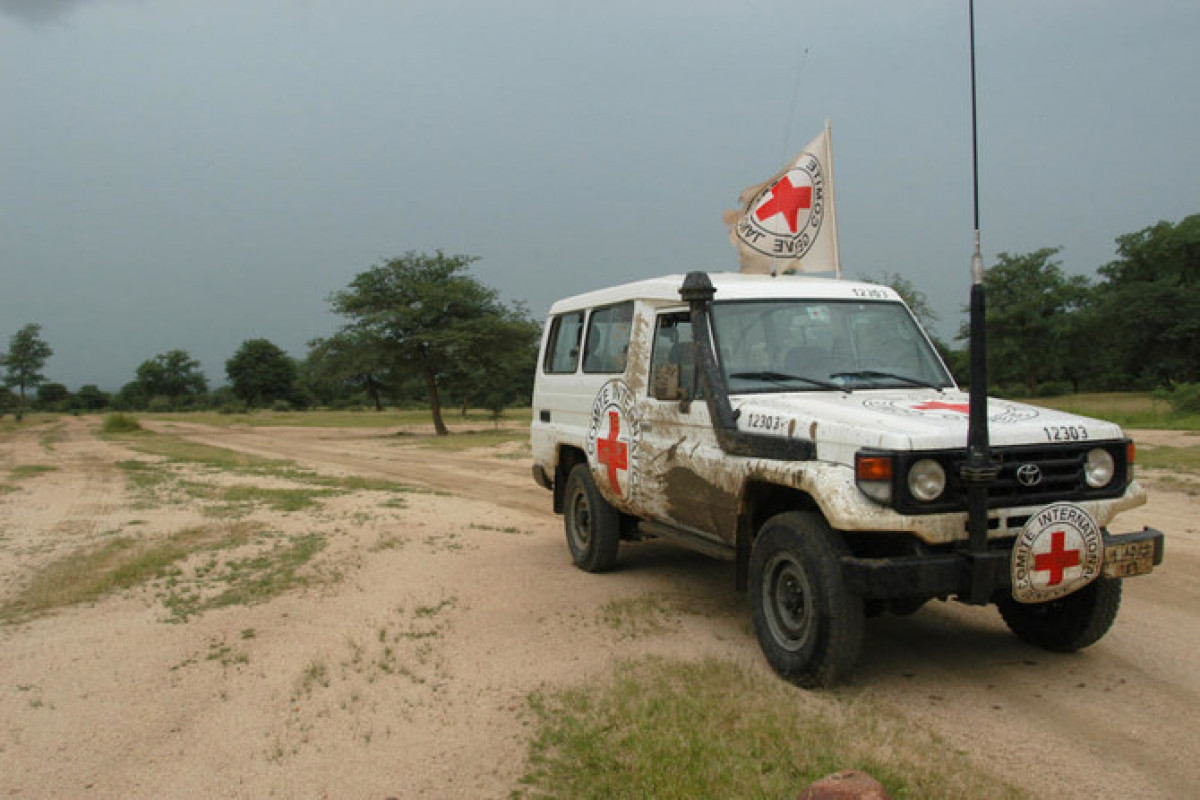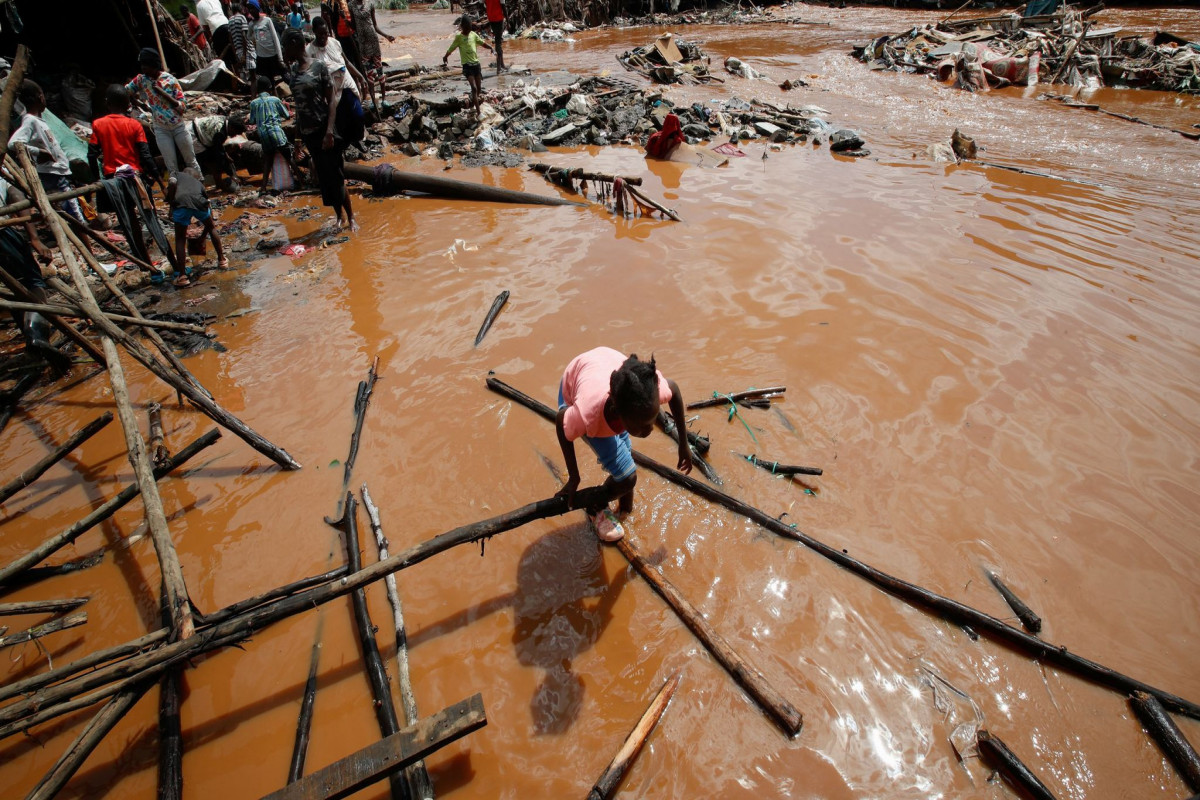Mubarak orders army to back police against unrest

Mubarak declared a night-time curfew after a day of running street battles between police and demonstrators unprecedented in his 30 year-rule. But clashes continued into the evening and a Reuters witness said shots were heard in central Cairo.
Dozens of people were wounded during the day when security forces fired rubber bullets, tear gas and water cannon at crowds and baton charged them.
The protesters hurled back stones and shouted "Down, Down, Hosni Mubarak."
Al Jazeera television said at least one person was killed in a square in central Cairo, although the report could not be confirmed.
The demonstrations involving tens of thousands of people were the biggest and bloodiest in four consecutive days of protests by people fed up with unemployment, poverty, corruption and the lack of freedom under Mubarak.
"This protest is not going to stop. They won’t and can’t trick the people again and give us some lame concessions. Hosni has to go," protester Mohamed Taha in Hussein said after fleeing a police attack.
"I am 70 years old, I am going to die, but these people have to fight to live," he said.
"According to what some provinces witnessed in terms of riots, lawlessness, looting, destruction, attack and burning of public and private property including attacks on banks and hotels, President Hosni Mubarak decreed a curfew as a military ruler," a state TV announcer said.
He also ordered the army to back up the police in their efforts to keep control of the streets. As darkness fell, tanks took up positions across the city.
"The armed forces started to deploy forces in the governorates of Cairo, Alexandria and Suez as a first stage in implementing the decree...imposing a curfew starting from 6 p.m.," the official news agency reported.
Some 2-3,000 people thronged around a military vehicle near the central Tahrir square in downtown Cairo, a Reuters witness said. They climbed on it, shaking hands with the soldiers, and chanted: "The army and the people are united" and "The revolution has come."
Shots were heard near parliament and TV showed the headquarters of the ruling party in flames, the blaze lighting up the night sky.
In the eastern city of Suez, site of the strategically crucial canal, armored cars deployed in front of the charred remains of a police station, a Reuters witness said.
Dozens of protesters climbed on the military vehicles in Suez. They tried to talk to soldiers who attempted to wave them off.
The unrest was triggered by the overthrow two weeks ago of Tunisian President Zine al-Abidine Ben Al Ben Ali in an uprising that has also inspired anti-government protests in Yemen and elsewhere.
The events pose a quandary for the United States, which has professed its wish for democracy to spread across the Middle East. Mubarak, however, has been a close Washington ally for many years and the recipient of huge amounts of military aid.
In response, U.S. President Barack Obama said social and political reforms in Egypt were "absolutely critical."
In Washington, Secretary of State Hillary Clinton said the U.S. government was deeply concerned by the violence used by the security forces against the protesters and she urged the government to restrain them. Protesters should be allowed to express themselves peacefully, she said.
Snatch squads of plain clothes security men dragged off suspected ringleaders. At the Fatah mosque in central Ramses Square, several thousand people were penned in and teargassed.
Protesters often quickly dispersed and regrouped.
Some held banners saying: "Everyone against one" and chanted "Peaceful peaceful peaceful, no violence." Others threw shoes at and stamped on posters of Mubarak. As clashes intensified, police waded into the crowds with batons and fired volleys of tear gas.
"Leave, leave, Mubarak, Mubarak, the plane awaits you," people chanted.
One car was set ablaze and some police cars were surrounded and attacked by protesters, witnesses said.
Prominent activist Mohamed ElBaradei, a Nobel Peace Laureate, was briefly penned in by police after he prayed at a mosque in the Giza area but he later took part in a peaceful march with supporters. Arabiya television said later police had "asked" him to stay home but this could not be confirmed.
TROUBLE ACROSS EGYPT
In Alexandria, protesters overran police lines and torched police trucks, a witness said. In several cities, protesters stormed the offices of the ruling National Democratic Party, witnesses reported.
In some parts of Cairo, protests were peaceful. Dozens of people prayed together on one road. In Giza, on the city outskirts, marchers shook hands with the police who let them pass peacefully.
It is far from a foregone conclusion that the protesters will force Mubarak out. They face two key challenges, said Amon Aran, a Middle East expert at London’s City University.
"One is the Egyptian security apparatus, which over the years has developed a vested interest in the survival of President Mubarak’s regime. This elaborate apparatus has demonstrated over the past few days that it is determined to crush political dissent," he said.
"Another obstacle derives from the fact that, so far, the protesters do not seem to form a coherent political opposition. The popular outcry is loud and clear, but whether it can translate into a political force is questionable."
Before Friday’s clashes, at least five people had been killed over the four days, one of them a police officer. Police have arrested several hundred people.
Members of the Muslim Brotherhood opposition group, including at least eight senior officials, were rounded up overnight. The government has accused the Brotherhood of planning to exploit the youth protests while it says it is being made a scapegoat.
Many protesters are young men. Two thirds of Egypt’s 80 million people are below the age of 30 and many have no jobs. About 40 percent of Egyptians live on less than $2 a day.
Egypt has been under emergency rule throughout Mubarak’s term in office. The government says it is used to combat terrorism. Critics say it is used to stifle any dissent.
Elections were due to be held in September and until now few had doubted that Mubarak would remain in control or bring in a successor in the shape of his 47-year-old son Gamal.
Father and son deny that Gamal is being groomed for the job.
NEWS FEED
US, allies discuss $50Bln Ukraine aid fund using frozen Russia assets
Brent oil price down below $83 per barrel on London’s ICE first since March 13
Russia temporarily suspends sugar export
Colombia to break diplomatic relations with Israel, President Petro says
Teams allowed to register up to 26 players for UEFA EURO 2024
Fire at German plant won’t affect production of IRIS-T air defense systems — Spiegel
Palestinian journalists in Gaza awarded World Press Freedom prize
Sri Lanka is ready to share its experience in cultural heritage preservation with Azerbaijan
Azerbaijan's Culture Minister met with Italian delegation
Warning of toxic smoke after fire breaks out at Berlin factory
Baku hosted 31th meeting of CIS Information Council
Azerbaijan's Aghdam hosted special session within 6th World Forum on Intercultural Dialogue -PHOTO
Senate of Malaysian Parliament delegation visited Azerbaijan's Fuzuli, Shusha - PHOTO
Traffic accident in Azerbaijan’s Kalbajar kills a military serviceman, injures others -UPDATED 1
GSMA M360 Eurasia 2024 is empowering digital transformation with global leaders in Baku
CSTO will remain an effective structure even without Armenia - Russian MFA
Azerbaijan, EU mull cooperation within framework of COP29
Azerbaijan will grant fathers right to receive labor pension under favorable conditions for children
China launches historic mission to retrieve samples from far side of the moon
Türkiye decided to cut its trade ties with Israel - President Erdogan
Azerbaijani, Russian Deputy PMs discussed trade and economic cooperation in Moscow
Russian, Tajik President mull Tajik migrants problem
6th World Forum on Intercultural Dialogue Participants visit Aghdam Juma Mosque-PHOTO-UPDATED
Azerbaijan's Milli Majlis announces date and agenda of next meeting
Azerbaijan Army's servicemen will take part in “Anatolian Phoenix - 2024” international exercises
Azerbaijan's Garabagh has huge tourism potential - Norwegian traveler
Azerbaijan to build bicycle tracks in Kalbajar
Norwegian travelers visited Azerbaijan's liberated Lachin and Kalbajar-PHOTO
Russian FSB neutralized one of organizers of Crocus terrorist attack
COP29.az website gets launched
Citizens of Kyrgyzstan, Uzbekistan, Tajikistan are not allowed to enter Russia
Azerbaijan, Saudi Arabia sign agreement on wind power project
European Commission official: We are in new era of cooperation with Azerbaijan -INTERVIEW
Kremlin calls statements of Macron and Cameron dangerous
Commander of Azerbaijan's Combined Arms Army pays an official visit to Iran
Azerbaijani FM leaves for a working visit to Gambia
President of Azerbaijan: We highly value Poland's position that spans the entire South Caucasus
Georgian MFA accused France of being non-objective
UNESCO official: Europe almost has no information about mine problem in Azerbaijan
Neocolonial policy of France on the edge of collapse- French Guiana is also on the path to liberating itself from colonization-ANALYSIS
Georgian PM: It requires special effort to restart relations with the U.S.
Aghdam's cultural and historical heritage was transported to Armenia, Azerbaijani Deputy Minister says
Armenia-planted countless landmines seriously impact humanitarian activities - Assistant to Azerbaijani President
Irakli Kobakhidze accused former US ambassador of supporting revolution attempts in Georgia
Azerbaijan to start relocation to Kangarli, Khidirli and Sarijali villages of Aghdam before end of year-PHOTO
Azerbaijani media is interested in building its work at the level of responding to modern trends - Director-PHOTO
Latest contributions of EU countries to Azerbaijan in field of demining unveiled- LIST
bp unveils production indicators of ACG and Shah Deniz fields
Azerbaijan detains person attempting to smuggle drugs from Iran
Population of Kalbajar city to reach 17 thousand people by 2040





